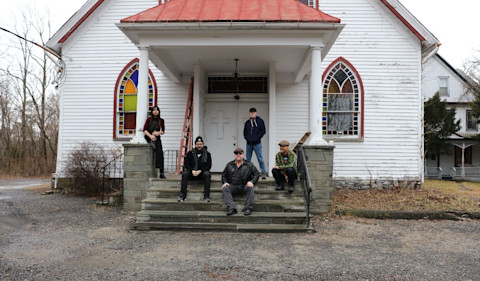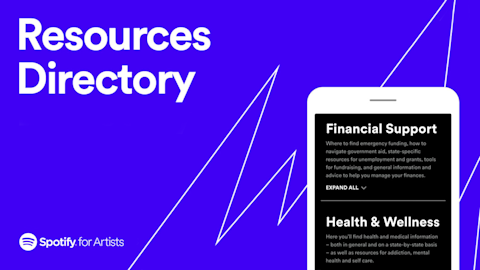He honed his sound growing up in small-town Missouri—and then discovered it resonated more overseas.
Ian Fisher has lived and worked in Europe for over a decade, but he isn’t European—at least not in the traditional sense. Born in Ste. Genevieve, Missouri, Fisher grew up on a farm and was inspired to learn guitar thanks to the music of Garth Brooks, The Beatles, and Wilco. As a teen, he started making the hour drive north to St. Louis to catch and play gigs; by the time he got to college, he had honed his style—a unique, indie-tinged combination of country, folk, and Americana—but he wasn’t attracting the audience he craved. A week after he turned 21, Fisher seized an opportunity to study abroad in Vienna, Austria, where he found a community of like-minded musicians and music fans, and he started to think that the road ahead might involve crossing a sea more permanently. He returned to the U.S. to get his things, hopped a plane, and didn’t look back.
To date, Fisher has lived in Vienna, Berlin, Dachau, and Munich. Since expatriating, he’s found tremendous success both in recording and touring: His releases have been praised by publications like Rolling Stone, Paste, and PopMatters, and he’s performed rollicking shows—both solo and with a full band—all over Western Europe. During his decade of living as a bona fide musician outside the U.S., he’s acquired some invaluable wisdom about what it takes to find and thrill an audience.
Every audience listens differently
Throughout his travels, Fisher has become attuned not only to the different ways people experience his music, but also to the cultural background that influences each audience. He’s found that each city and town has its own distinct way of receiving live music, and as an outsider, he’s collected a unique set of ideas about how to anticipate and please different kinds of audiences when planning gigs.
One major thing Fisher pays attention to is language. Most of his songs are in English, but he always tries to cater to the places he’s visiting. “Geographically, when I’m in German-speaking places, I’ll play a song in German and I’ll speak to the audience in German. When I’m playing in Italy, I’ll play a couple of songs in Italian, and I’ll speak to the audience in my broken Italian,” he said. “In Italy, there will be a few people in the audience who understand the words, but the majority of the audience is going to be purely reacting on the vibe of the music.” Which means, to Fisher, that it’s also extremely important how he conducts himself and commands a crowd.
Fisher’s consciousness of language barriers includes his attempt to be understanding of what live music and the act of performing means in a particular place. First of all, the kind of venue is an important consideration in how Fisher interacts with a crowd—whether the space is in a city or in the country, whether it’s seated or standing, whether there’s a bar in the same room as the venue. “All these things factor into the set,” he explains. Sometimes, he finds that audiences are quiet and attentive, while other times, they can be rowdy and unfocused. Part of that, in his estimation, is just different regional attitudes to seeing live music, which come with different expectations of how a performer will behave.
“Certain places prefer an artist to be stoic and confident, and certain places prefer the artist be more self-deprecating and approachable. I usually just go on stage and am myself, whatever mood I’m in at the time,” Fisher says. “Sometimes it works and sometimes it doesn’t. I often feel that, on a cultural level, I’m somewhere between these two identities.” He doesn’t strive to conform, necessarily, but he’s definitely aware of how he’s being received against the audience’s hopes, and sometimes that does guide his stage banter, his humor, and how he generally holds himself.
Playing their tune
As far as setlist planning, Fisher says that it’s possible to lock into specific tracks that audiences will like, and even predict regionally what people are going to respond to. Monitoring digital streams is one of the best ways to pre-read audiences, Fisher explains. “You can go in and look at overall top plays and curate a setlist around songs that have a higher amount of streams [in a certain geographical area], which can be a good way of using the technology to theoretically give the audience what they want,” he says.
Fisher notes that his songwriting has changed since he moved to Europe, too. “The different places I’ve lived have deeply influenced what I write about,” he says. “Even though a lot of my songs are about personal experiences and relationships and such, the way I see those relationships and experiences have been fundamentally influenced by where I am and where I’ve been.”
At the end of the day, Fisher has come to write about the elements he knows he has in common with his fans, believing that many of us ultimately want the same things. Going into each show, he hopes to guide his audience to stay in touch with those desires. “I would want them to feel connected and I would want them to be able to see themselves in the songs,” he says. “I would want them to feel less alone. I would want them to feel like they had a real experience and that their flaws, personally, are ok, because everyone has them. I write a lot about mine.”
—Adam Rothbarth
Popular Stories
video
How Julia Wolf Made It




